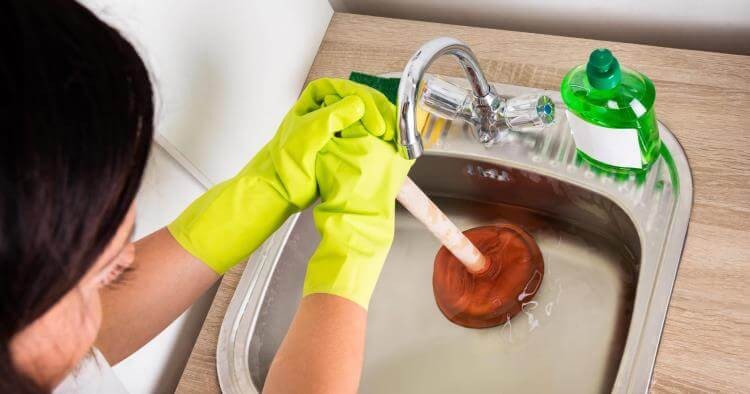The kitchen is one of the busiest areas in your home. It is now a surprise that just like your bathroom areas, it is prone to several hiccups such as blocks and clogs in the drainage system. Your home plumbing is also oftentimes compromised with issues that begin in your kitchen drains. Learning how to unclog your drain and to prevent such problems from occurring will help you a lot in avoiding expensive visits from your trusted plumber.
Blocked drain repair can be quite costly, and can be a disturbance in your home, especially when done in the kitchen area. Clogged drains can be a recurring issue, especially during warmer months of the years when the climate is warm.
Why do Kitchen Sinks Clog?
The most common reason why your kitchen sinks clogged is because of the things that you throw down the drain. If a homeowner is not conscious of the items that they should be tossing inside the garbage disposal, instead of the kitchen drain, clogs can occur more often. Egg shells, fats and grease, as well as small food leftovers are just some of the most common things that cause blocks and clogs in your kitchen sink.
How to Prevent Kitchen Sink Clogs
One of the sure-fire ways to prevent kitchen sinks from clogging is avoiding throwing anything, intentionally or accidentally inside your drains. Although the garbage disposal is designed to churn down small food debris into pieces to pass down your drain, not all of these pieces are broken down and may still cause blocks on your pipes. Among the popular food items that you should completely avoid pouring down the drain are the following.
Cooking greases should be carefully disposed of in a container, for recycling or for the trash. It should never be thrown down the drain. They are sticky and can easily build up around your pipe lines at home, especially your kitchen drain pipes.
Coffee grounds should be thrown straight to the garbage can and not down the drain. Interestingly, you can have them in a mulch pile in your backyard where they will eventually decompose in time. Coffee grounds can easily stick to the pipe lines with grease and other sticky materials. They are also harder food items that can damage your kitchen garbage disposal.
Drain grates can also help a lot in preventing soap and other food debris from falling down the drain. Other items like small toys can also be screened by grates from ending up in your kitchen sink drains. You can buy a drain gate from any local plumbing store and install it on your own.
Keep Your Kitchen Sink Drains Clean to Prevent Clots
Keeping your drains clean at all times, through regular DIY cleaning or with scheduled visits from your professional plumber can improve the conditions and keep your kitchen sink drains running smoothly at all times.
Running hot water down your kitchen drain is one of the basic DIY cleaning methods that you can practice to prevent clogging in your drains. It also helps push food products and sticky grease to run down the drain easier.
Baking soda mixed with vinegar and drained with hot water is also a common solution for keeping your kitchen drains clean and free from clogs. Baking soda is also very useful in removing unnecessary odours from your drain.
Vinegar and hot water is also a natural cleaning combo that can be used to get rid of organic build-up in your kitchen drain pipes. Vinegar is made up of the chemical acetic acid which is very ideal for removing food debris.
Annual professional clogged drain cleaning fall river ma is also a good investment you should consider for your homes. An experienced professional plumber is equipped with the right knowledge and technical expertise to do this job fast and correctly.


